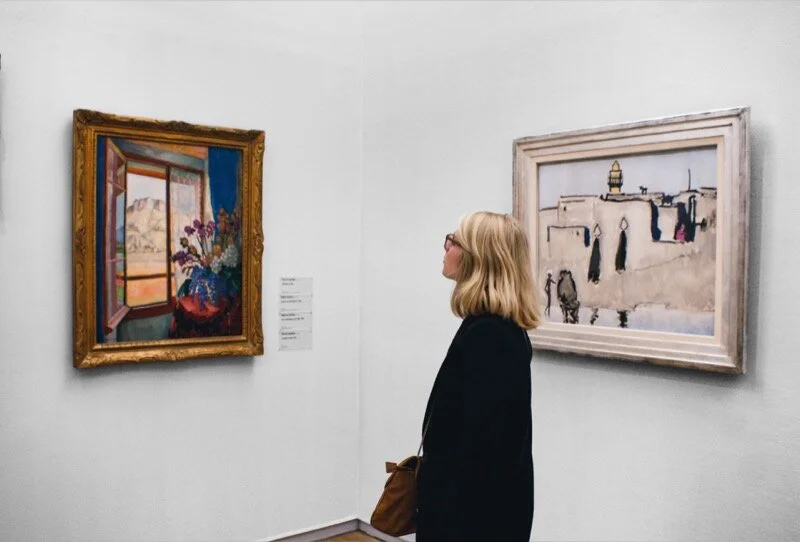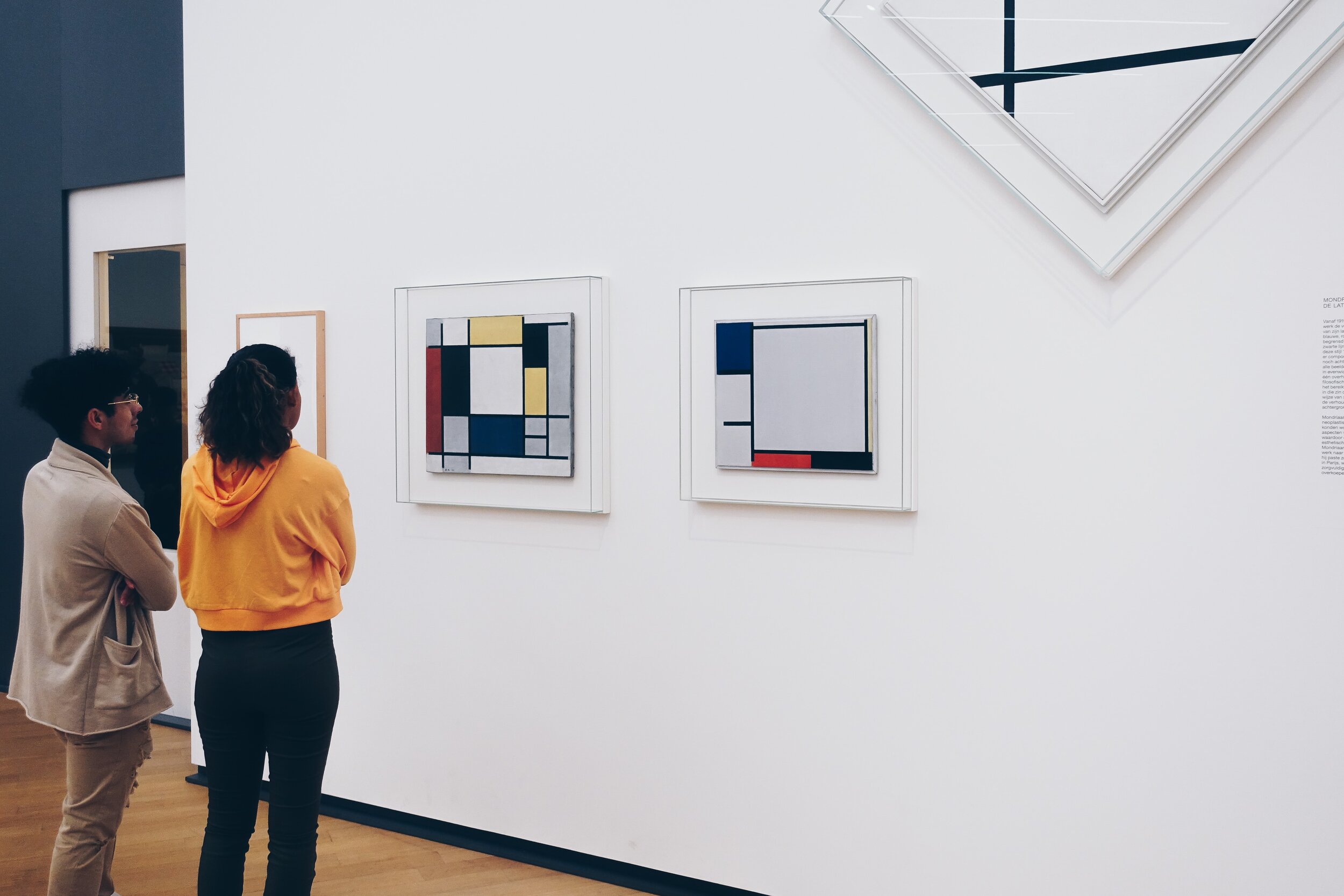Why College Freshmen Should Study Fine Arts
“We don’t tell students what to think. We strive to teach them how to think,” states Bowdoin College’s president Clayton Rose in an article for Time Magazine. Liberal art schools may seem outdated or unnecessary in the modern world, but the opposite is profoundly true—liberal arts matter now (maybe even more than ever before).
As a preface to this article, I want to clarify that I am not a professional artist who makes a living from the fine arts. I am, however, a professional with a college degree in music. I feel passionately about the fine arts, not only because I spent years studying but also because I see incredible value in the fine arts.
I am also aware that the fine arts are not an active part of the average American’s life. (I realize this is a generalization, but stick with me.) Popular culture may occasionally insert a reference to a famous painting, piece of music, etc., but these references are only in passing. The current pandemic, however, has caused the general population to awaken to how much we all rely on artists.
We need art. We need art to see the world differently. We need art to process our frustrations and uncertainties. We need art to understand others' stories. However, American society doesn’t generally “put their money where their mouth is” when it comes to the arts.
While we may spend hours streaming Youtube videos with (if we’re honest) fairly low-quality content, what we consume as our “guilty pleasures” after a long day often do little to help grow and stretch us. I’m not advocating for a ban on Youtube, but this post is my plea for studying fine art while in college.
Why don’t many college freshmen care about the fine arts?
First let me start by clarifying this question: not every student should major in art. But I do believe every student should make fine arts a part of their college education.
In general, the average American typically doesn’t invest much time in fine art or money toward fine art. Why? Many forms of fine art seem inaccessible, irrelevant, outdated, or impractical. The fine arts—classical music, original paintings, Shakespearean theatre, etc.—seem like they’re meant for the wealthy or highly educated, not the everyday person.
False. Fine art is not just for the educated, the wealthy, or the old soul. Fine art is for you too, college freshman.
Why don’t many college freshmen study fine arts?
Fine art seems completely unrelated to your major. What does Shakespeare have to do with accounting? What does Bach have to do with nursing? What does Monet have to do with engineering?
Initially, these famous artist may seem to be completely irrelevant to most fields of study. With closer examination, you can see how fine art has much to do with life—every aspect of life. How so? (Keep reading.)
Why should you study fine arts in college?
So why do the fine arts matter? Why should you sit through an opera? Why should you visit an art museum? Why should you attend a play? Why should you seek out opportunities to expose yourself to art you wouldn’t normally take time or spend money to see.
First, the fine arts matter, because it teaches you empathy. Fine art removes you from your everyday experiences and informs your mind about life from a different perspective. It teaches you about life: what life was like, what it is like, and what it could be like.
Seeing life from another point of view and often a different spot in time helps me see life more holistically. Without art, you can easily get stuck in your struggles, your experiences, your point of view. By intaking art, you are forced to see life differently. You’re forced to grapple with different lives, different challenges, different obstacles, etc.
Second, the fine arts matter, because it forces you to examine the value of what you intake. Why do you listen to the music you listen to? Why do you watch what you watch? Your instinct may be to respond, “because I like it”. If you’re entirely honest with yourself, you may find your reasoning stops at liking. You intake what you intake, because simply you like it.
Liking popular music or Youtube videos isn’t a crime. There is nothing inherently wrong with liking them. But if you’re constantly filling your mind with entertainment or art simply because you like it, this isn’t healthy for you long term.
Eating cookies, ice cream, donuts, pizza, hamburgers, french fries, etc. over and over, because you like these foods, would wreak havoc on your health. You’ll have terrible energy. You won’t sleep well. You’ll likely gain weight. In the end, you’ll be unhealthy.
The same is true with art. There is nothing wrong with intaking art you enjoy, but if you constantly intake art from pop culture you’re thinking is going to be limited. You will miss out on seeing perspectives that have been preserved over time.
These pieces of fine art have been passed down and studied for hundreds (in some cases even thousands) of years, because generation after generation viewed them as being of great value. If you give fine art a chance, you’ll see the value in it too.
Third, the fine arts matter, because it broadens your experiences. As a college instructor at a liberal arts university that requires students to intake fine art, I grow weary of hearing doubts that this requirement is truly a valuable part of a college education. Because for me, the fine arts have been life-transforming.
I’ve had the privilege of consuming fine art since childhood. I’ve also had the privilege of participating in numerous choral, orchestra, and solo music performances. These experiences have been life-changing, some of the brightest highlights of my college education.
While you may never be able to learn an instrument, draw well, or act on a semi-professional level, you can a lot by exposing yourself to art you wouldn’t otherwise participate in or view. There is something character-building about attending a show or a performance of a celebrated piece of fine art. Being able to put aside your preferences, you enable yourself expand your thinking and broaden your experiences—exposing you to a world you might otherwise miss out on.
How can studying the fine arts help your college studies?
In the world of YouTube stars and witty Instagram captions, our attention is constantly captivated. Whether it’s a Spotify advertisement or a sponsored post, modern marketing is doing all it can to say, “look at this.”
Because our attention has become such a valuable commodity, taking time to stop and sit through even a movie seems like too much of a time commitment. We don’t have that kind of time (though we usually spend the same amount of time searching Netflix before landing on a show). However, many forms of worthwhile and valuable art cannot be experienced in less than a few hours.
Rather than dismissing certain forms of art, thought to be boring or uninteresting, consider why many forms of fine art have been valued for centuries. There must be something worthwhile to see and experience, even if it is not immediately obvious.
Taking the time to experience other art forms adds to your required college courses. They are the result of what you are learning in your history classes. They are the manifestation of what you are learning in your philosophy courses. They are the outcome of years of applying what you read in your English courses. They are a snapshot of real life in a different time.
Allow your mind to wander and your thoughts to explore what life was like by making fine art part of your college education. Choose to expose yourself to something you wouldn’t normally see. This is what real education should look like: exploring something considered highly valuable by those who lived years ago.
Take advantage of performances and showings. Choose to push yourself out of your normal comfort zone. You’ll be amazed by how you learn to see the world.












